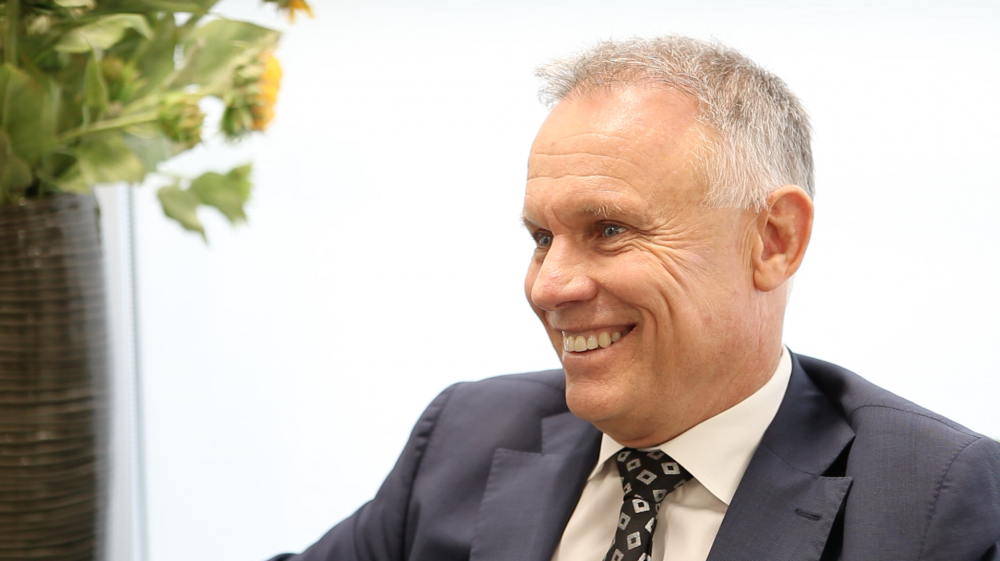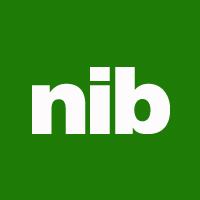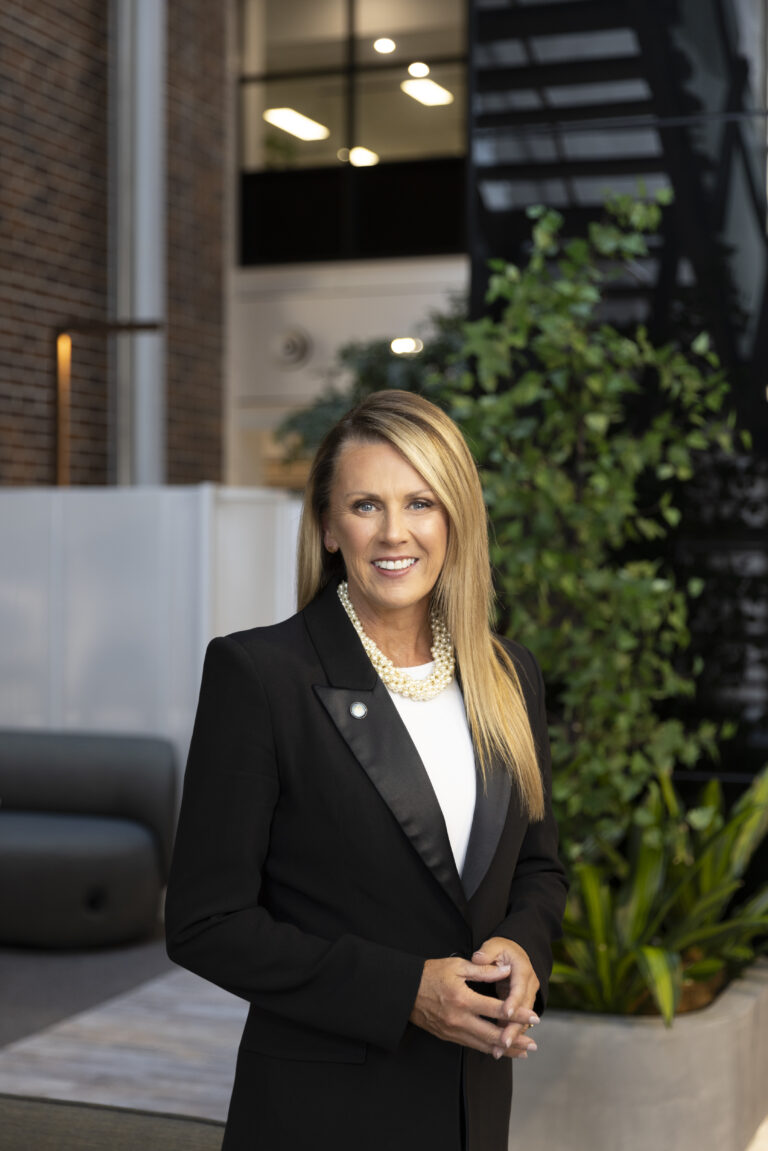Born and raised in Cessnock, Mark Fitzgibbon is the Chief Executive Officer and Managing Director of Hunter based private health insurer nib.
Mark was named business person of the year in 2012 by the Hunter Business Chamber and in 2014 he was appointed to the newly formed Board of the Newcastle Knights.
Mark believes good leaders need to be able to articulate their plans and they strive to challenge the status quo, always innovating to remain ahead of the game.
- Could you tell us a little about your career path?
Well its been a bit of a long path so far. I actually grew up in Cessnock and started working for the biggest corporation in Cessnock which happened to be the Cessnock Council back then.
I had a career in local government for about 17 years and I was running a couple of large councils throughout the State at an early age. I woke up one morning and decided it was time for a change and made a career transition into the licensed club industry, both at a State level principally, and nationally, and 13 years ago now I was approached to run nib which was a much smaller and focused Hunter Valley company and today we can proudly boast to be an international company.
- What do you believe has shaped your leadership style?
A whole heap of forces – I don’t think there was any one factor. We all have role models in our life, we all have education, our life experiences. I remember somebody said to me a long time what makes a good song writer. I reflected on tone, creativity and all those factors that automatically jump to mind, but he said no, a good song writer is somebody who writes good songs! Which I thought was flippant but the more he explained that good song writers have certain methodology – verses, a chorus, a bridge – so leadership is very much intrinsic to people but it is also an art that can be learnt.
Certainly I’ve learnt over the years’ certain conditions of good leadership – having a very clear vision and sense of purpose on what they are on about and articulating that. Good leaders are always very good at articulating what they’re on about and why, showing people in your company or your organisation how they fit into the plan. Psychological process of closure means people like to see where they fit in and how they are adding value, how they’re making a contribution. Good leaders give a lot of feedback, they say thank you a lot, but they also hold people accountable after having set clear goals.
So there are a whole range of factors which characterise good leadership so I think anyone can become a good leader with experience and with some definition as to what good leadership actually means.
- How do you encourage creative thinking and leadership within your organisation?
We have a certain philosophy, a culture, at nib which sounds a little bit serious but it’s more a concept borne out of biology and evolutionary science. It suggests that the idea that business strategy is somehow predicting the future and betting the farm on some specific future is nonsense. Nobody can predict the future and the best we can do is actually predict certain future scenarios or certain future states and ensure that within our business we’re focused upon being able to adapt to whatever the world serves up.
There is a wonderful story about Bill Gates. Bill Gates didn’t bet the farm. Bill Gates didn’t wake up one morning and say look, the world is going to be Windows and I am going to bet the farm on Windows. Bill Gates had six separate projects going and as the world started to like and move towards Windows he amplified that and started to reduce his effort and investment in the others. We think in a similar way in our company – we always have an open mind as to what the future can look like and we have multiple experiments going on across the business. We have a business where we insure overseas students and workers today – 100,000 – that didn’t exist five years ago and was premised on the fact that we saw that Australia was importing more students and had a growing appetite for workers and we made a little bet and today it makes about 20 million dollars.
I suppose culturally the other thing we preach in the business and encourage is a sense of discontentment – that we’re never happy with the status quo and that we understand that the status quo is eventually death, and that unless you are continually innovating, creating and remaining agile the world, and the commercial world can be particularly brutal, will select you out.
- How do you define the difference between a Manager and a Leader?
I don’t know if it’s a dichotomy. I generally accept that any manager has to be a leader and any leader is by definition managing people and so it is a bit of false distinction and I would only echo my earlier observations about what it takes to be a good leader. I suppose the manager side of things focuses on actually setting goals and holding people accountable within that context that I spoke about earlier but I don’t see any big distinction, I think they are one and the same.
- What local businessperson do you find inspiring?
Look there are so many – Newcastle and the Hunter are blessed with so many leaders. He’s gone now, Col Rogers, my predecessor, took nib from virtually nothing to what it was when I arrived in the business 13 years ago.
You’ve got people like my good friend Phil Gardner who developed the West Group into what it is today and before him Bob Ferris who was an important part of that story.
You’ve got guys like Jeff McCloy who I admire, people like Jeff, Hilton Grugeon, Keith Stronach have all shown what I spoke about earlier – had a clear vision and a sense of purpose about what they were doing and were prepared to invest, prepared to take risks prepared to experiment and then very good at amplifying those business plans, those initiatives that they had taken to turn their businesses into what they are today.






